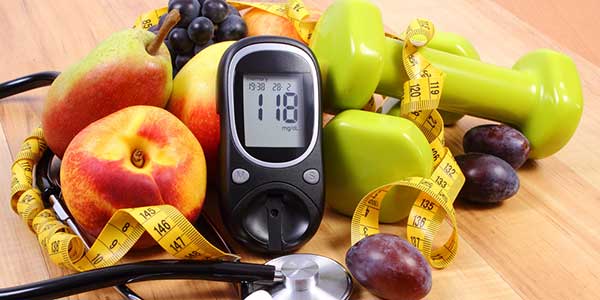
How to Reverse Diabetes
First off, you may be even wondering, "Can diabetes be reversed?" Simply put, diabetes can be reversed dependent on various factors, including the duration of diabetes, its severity, and the individual's genetic lineup. Additionally, completely reversing the condition does not mean reversing back into old habits, but rather going off medications while continuing good lifestyle choices. Individuals can increase their likelihood of reversing diabetes through the following recommendations:
1. Reduce Refined Carbs and Sugars
When it really comes down to it, refined carbs and sugars are essentially not much more than empty calories, denoting they pack on calories without any sort of nutritional value. Products such as white breads, pastries, and sodas are also generally high in the glycemic index, implying their intake can easily spike blood sugars.
2. Increase Whole Grains
Unlike refined carbs, whole grains and their products are ample in essential nutrients and fiber and tend to be lower on the glycemic index scale, ultimately slowing the absorption of glucose into the blood. Individuals who consume a high-fiber diet are more likely to maintain a healthy weight, subsequently improving insulin utilization.
3. Embrace Color
No, not the artificially-colored sugary cereals… But nature's true vibrant bounty of fruits and veggies! Embracing colorful produce can naturally increase fiber and nutrient intake without large concern of heavy caloric volumes.
4. Consume Healthy Fats
Swap out saturated and trans fat products with healthful fats, including those omega-3 fatty acids. Although omega-3s have continuously been touted as heart healthy, the healthy fat also been shown to reduce insulin resistance in people with type 2 diabetes. Extra virgin olive oil, a type of monounsaturated fat, has also shown to reduce after-meal blood sugar levels.
5. Watch Portion Sizes
Along with filling the meal plate with nutritious foods, attention should also focus on portion sizes. Portions have dramatically grown over the decade, and may have even doubled the recommended serving size. To keep portions and calories naturally in check, load up on veggies first and compliment with a lean protein source. Using smaller plates, placing the fork down between bites, and thoroughly chewing foods can also reduce the risk of overeating or second helpings.
6. Limit Alcohol
Like refined carbs and sugar, alcohol does no more than pack on calories. (And oh boy, can it!) Alcohol contains calories within itself and pair with sugary mixers for multiple rounds, hundreds upon hundreds of calories can easily pack on. Alcohol can also dramatically increase not only appetite, but blood sugars as well. Blood sugars generally feel considerably low the morning after, making the urge to eat even stronger. So it goes without saying, if you are to drink alcohol, stick to the recommendations - limited to two drinks for men and one drink for women each day.
7. Exercise Regularly
Regular exercise as a natural cure for diabetes is much more than the weight loss concept of "calories out must exceed calories in." Along with exercise's role in weight loss, blood sugars can be controlled by keeping active, as active muscles obtain the glucose they need, therefore reducing glucose in the blood. Exercise for at least 30 minutes on most days of the week, incorporating at least two days of strength and resistance training.
8. Sleep
It is not too uncommon individuals dismiss the importance of sleep when it comes to physical health. As an interesting circle of events, sleep can affect blood sugars while poor blood glucose control can lead to trouble sleeping. To obtain control of both sleep and diabetes, try sticking to a regular bedtime and make sure the room is dark, cool, and devoid of any distractions.
9. Manage Stress
High stress can impact blood sugars in two fashions - stress hormones can spike blood glucoses directly while dealing with it through stress eating and alcohol abuse can also lead to poor diabetic control. Though stress is a normal part of day-to-day life, it is important to not let it get the best of you. Manage stress with yoga and meditation, exercise, a book, or warm bath.







